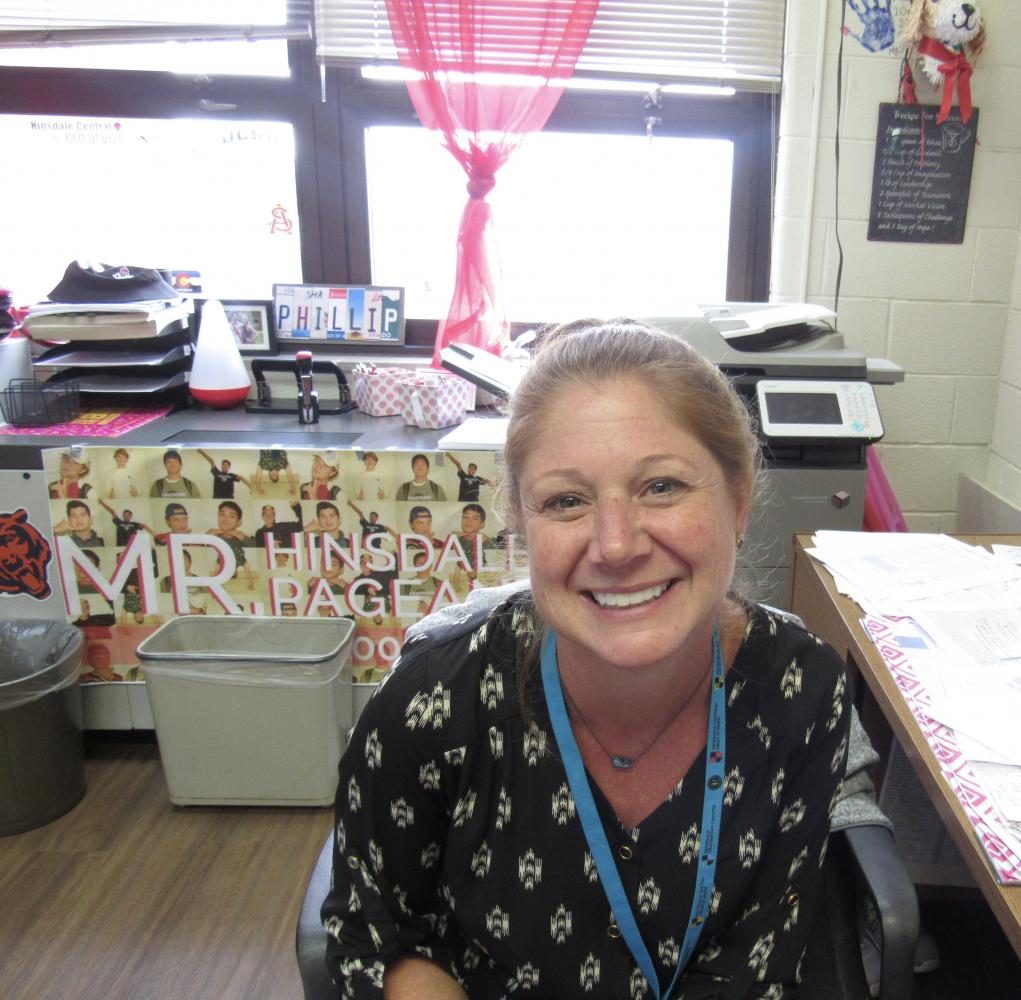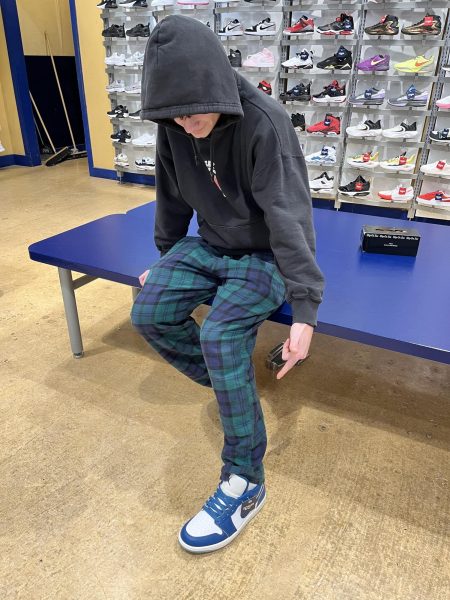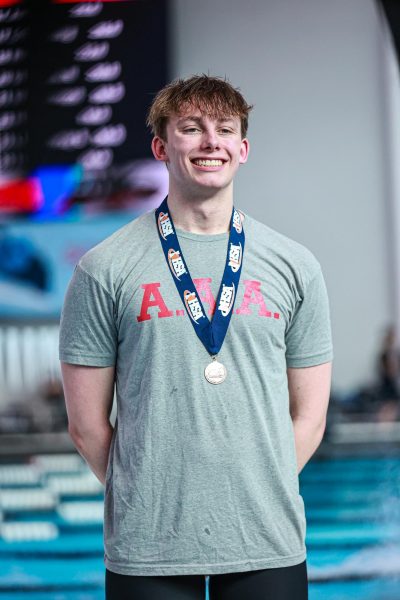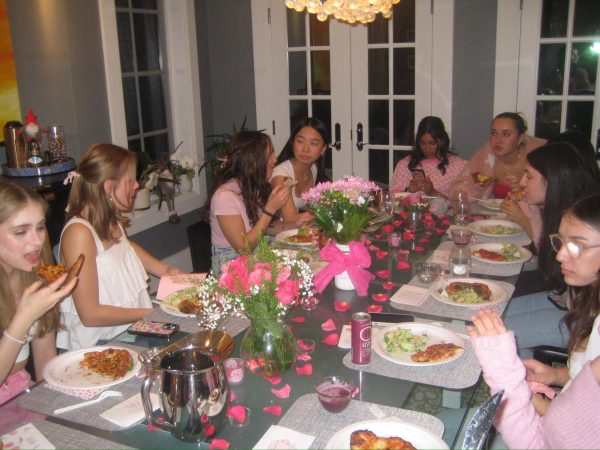Starting clubs at school*
Mrs. Sally Phillip, who is the Activities Director, meets with students to discuss club events and starting clubs.
The glow of the sun rising into the Tuesday morning sky signals the beginning of a new day. Students at Central filter in through various entrances around the school, heading for music rehearsals and club meetings. Jui Khankari, sophomore, makes her way to room 215 to host her biweekly meeting of the club she started, AI Club. She prepares her plans, and patiently awaits the arrival of members so that they can begin to explore the vast field of artificial intelligence.
Khankari started the AI Club this school year, but recently, some students have expressed the fact that creating a club hasn’t been as easy as it used to be, and multiple students have noted that their applications for creating a new club have been rejected. However, finding a club hasn’t become an impossible task, as many new clubs have popped up in the last couple of years. Being able to create a club is an ability and experience that high school students have cherished, and some have voiced their concern that this opportunity is being taken away.
Students need 50 signatures from their peers, as well as a teacher sponsor in order to start a club. Throughout the application process, students have to demonstrate their passion, fill out an application form, and be interviewed by members of Student Council. Sally Phillip, activities director, has the ultimate say in whether a club is approved or not.
For some, the application process leads to the creation of a new club, but for others, their club ideas are rejected. For instance, Esha Modi, senior, attempted to start the Ecofin club, a fundraising club that focuses on providing better opportunities to children. Modi’s mother is an Ecofin ambassador, and that gave Modi the idea to start a club here. She went through the appropriate steps and had completed everything that needed to be completed, however her club was not approved.
“We felt kind of defeated because we’d gone through all the work to do the application. [My peers and I] met a ton of people who were interested in joining the club too, and we ended up falling through before it started,” Modi said.
Modi said that there were a variety of reasons why her club was not approved. Since Central already has volunteer clubs such as National Honors Society (NHS), her club was viewed as a chapter from a larger club, which needed a lot of money to raise for donations.
“We don’t have a club that donates to such a global cause like this club would have done. It’s not a duplicate of another club that we have right now, it could be its own separate club,” Modi said.
However, Philip said that clubs need to be greatly distinctive from each other, not to be too similar to each other.
“My greatest fear with all these new clubs is pulling people way too thin and having something that could easily benefit and help revive a club that’s already here,” Phillip said. “And then to pull those people out of a club that is already functioning to try this new one out…might be just a little shot in the arm.”
Despite the turnback of Modi’s club, Modi continues to participate in every volunteering club as she can because of the fact that she cannot do her club at school. She says that before students start the application process for a club, they should ask before indulging themselves into the long application process.
“Lay out your vision for the club before actually going to the work of doing everything just to make sure that you’re not wasting your time,” Modi said.
For Khankari, her club was approved. Called the Artificial Intelligence Club, A.I. Club for short, her idea blossomed when she went to a summer camp over the summer and learned about artificial intelligence. Khankari was passionate to start a new club to educate her peers who do not know about it.
Consisting of five to ten members interested in the A.I, her club uses Kaggle, a platform for modeling and analytics competitions that allows users to find and post data sets, build models based on a data-science environment, and let’s users enter competitions to solve science challenges. The club acquires Kaggle to work on the competitions and to learn about machine learning and coding.
Passionate to fulfill her dreams in science, Khankari said she hopes that A.I. will become a popular topic in the future.
“I want people to be aware that A.I. is a field and it’s fun, not robotics. I want to give people an introduction to [A.I.] so it doesn’t feel daunting to do it,” Khankari said.
Just as Khankari, Abby Chute, junior, started the Science Inquiry club in November 2018 out of her admiration of watching conspiracy theory videos and crime documentaries. Chute and her friends started the club, sponsored by Mrs. Jordan Stob, English teacher, which meets biweekly on Friday mornings, where members watch videos and discuss their conspiracies. Chute has made this club as a social activity, uniting students together, and for students who do not get involved in a lot of clubs.
“A lot of people would enjoy this and would really like to watch this type of stuff. A lot of people are not in clubs, because it’s hard to get in clubs since it’s hard to find what you like,” Chute said.
As new clubs try to get their word out to convince students to attend club meetings, Chute advertises her club through social media and by informing her peers in her classes to come. She was able to let people from different grades come to the club, serving donuts to the club members while watching a conspiracy video.
“People should really come to the club, it’s a lot of fun, laid back, and you don’t have to come to every single meeting. The main point of our club is to have fun,” Chute said.
Since Mrs. Stob has experience with discussions in her English classes, Chute said that she was the right one to sponsor the club.
“Mrs. Stob is really good at leading discussions. If we start getting a little off track, she can pull us back in whatever we’re talking about,” Chute said. “She’s one of our favorite teachers, the sweetest lady ever [with] a bubbly personality.”
All clubs are run by club sponsors, teachers or staff members chosen by students. Without a club sponsor, then the club cannot run because there needs to be a supervisor to watch the students and to make sure that the students are doing what they are supposed to be doing. It has to be someone willing to sponsor the club with no payment.
Gina Gagliano, math teacher, decided to sponsor the Spikeball club, out of her prior experience from leading the Yoga and Meditation Club. It all happened when two students came up to her who wanted to start the club and asked Gagliano if she would like to sponsor it. Since she has three more years to retire, she decided to go for it.
“I thought that anytime you can get kids to do something that’s athletic outside and having fun, that’s a good idea. It’s a nice thing to give to the school,” Gagliano said.
Gagliano said that being a sponsor will strengthen her relationship with students rather than academically. She sees that any teacher willing to volunteer for an extracurricular activity will make students appreciate their teachers from a different perspective.
“It’s always nice to have the opportunity to relate with kids in a way other than academically. If I play, then they will see that I was an athlete at high school,” Gagliano said. “They get to appreciate their teachers from a different perspective when they see that they’re not just their math teacher.”
At this time, new clubs are experimenting and deliberating through their ideas of keeping their club lasting and successful, making a difference in the student body. Khankari hopes that her new club will be achieved and last after she graduates.
“I have two goals. First of all, to make my peers aware that A.I. is a field and that it’s fun,” Khankari said. “I hope it gets more popular as it becomes older.”
As to Chute, she hopes this club persists as one that unites friends and peers to share their ideas about conspiracies. She says that this club is best for people who are not involved in a lot of school activities, and is a good way to be involved with peers.
As many new ideas circulate through the building, including club ideas, students have many new interests to come.
“Kids have some really, really great ideas for new confidence. It’s fun to hear their proposals and how they’re going to work,” Phillip said.














